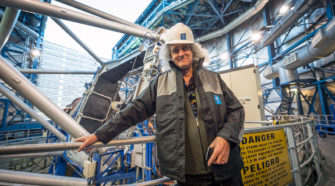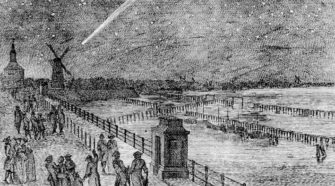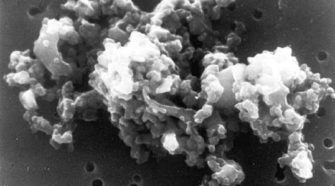Week 35
This Week in History: August 23-29
AUGUST 23, 1862: The comet now known as Comet 109P/Swift-Tuttle passes through perihelion at a heliocentric distance of 0.963 AU. The comet had been discovered the previous month independently by Lewis Swift and Horace Tuttle, and became a conspicuous naked-eye object. It is the parent comet of the Perseid meteor shower and is a future …
Comet of the Week: Messier C/1769 P1
Perihelion: 1769 October 8.12, q = 0.123 AU As discussed in the “Special Topics” presentation on that object, in the early 18th Century the British astronomer Edmond Halley predicted that the comet that now bears his name would be returning around 1758. As that time approached several astronomers became involved in the effort to search …
Special Topic: Interplanetary Dust
The “Special Topics” presentation two weeks ago pointed out that the term “small bodies” of the solar system generally refers to objects like comets and asteroids, although that particular presentation discussed another class of such objects, i.e., the small moons of the planets. To carry the term “small bodies” to an extreme, we could examine …



